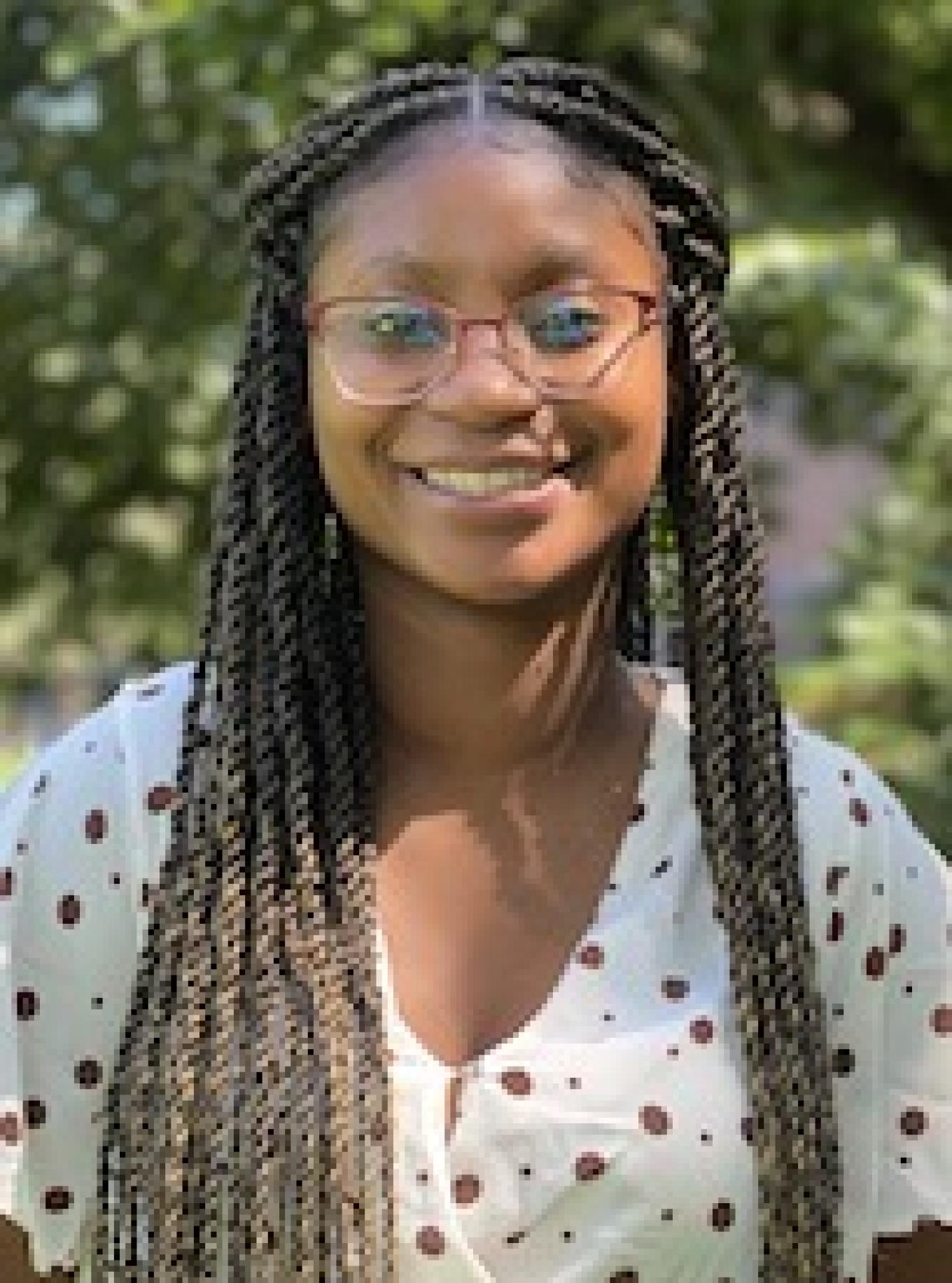Mirinda Morency
-
Pronouns: she, her, hers
-
Doctoral Student
-
Institute of Child Development
Carmen D. and James R. Campbell Hall
51 East River Parkway
Minneapolis, MN 55455 - moren439@umn.edu

Areas of interest
Exposure to violence; Early adversity & adjustment; Discrimination; Trauma symptoms, risky behaviors, & physiological functioning; Adolescents and youth; Cultural, cross-culture; Prevention/intervention; Resilience; Mechanisms of change; Social determinants of health
Master of Science in Social Work, Columbia University, 2019; Bachelor of Science in Psychology, Loyola University, 2015
Mirinda Morency (LCSW), NIMH T32 Predoctoral Fellow, is a third-year doctoral student in the joint Developmental Psychopathology and Clinical Science program at the University of Minnesota, Institute of Child Development. She is primarily interested in the role of context (school-community) in shaping typical and atypical adolescent development among ethnic-racial minority youth and in understanding the determinants and processes of risk and resilience across the lifespan. Originally from the south suburbs of Chicago, she engaged in community-based participatory research (CBPR) in Chicago through a cross-age peer mentoring program designed to reduce negative outcomes related to violence exposure/engagement and promote positive youth development. Before arriving in Minnesota, she earned her MSW from Columbia University in New York and spent a few years providing trauma-informed clinical services in the city. She hopes to continue to unpack cultural nuances surrounding early childhood program/treatment effectiveness (e.g., for whom and under what circumstances yield maximum program impact) and translate her research into culturally-sensitive, developmentally appropriate preventive interventions for youth and families to contribute to equitable healthcare and psychological well-being.
Morency, M. & Reynolds, A. (under review). Do School and Family Factors in Adolescence Predict Midlife Psychological Well-Being? Findings from an Urban Childhood Cohort.
Reynolds A.J., Ou, S., Mondi C.F., Giovanelli A., & Morency, M. (under review). Structural Inequality Modifies Midlife Outcomes of a Multisystemic Early Childhood Program for a Low-income, Urban Cohort.
Dinizulu, S.M., Velez, G., Morency, M., Jacobson, K., Moore, K., & Frazier, S.L. (Accepted). Lift Every Voice: Engaging Black Adolescents in Social Justice Service-Learning to Promote Mental Health and Educational Equity. Prevention Science.
Dinizulu, S.M., Velez, G., Morency, M., Jacobson, K., Moore, K., & Frazier, S.L. (2022). Lift Every Voice: Engaging Black Adolescents in Social Justice Service-Learning to Promote Mental Health and Educational Equity. Prevention Science. (Submitted).
Morency, M. (2022, April 14). Psychological Well-Being Starts Early. HCRC Evidence Matters Blog. https://hcrc.dl.umn.edu/news/psychological-well-being-starts-early
Sargent, E., Zahniser, E., Gaylord-Harden, N., Morency, M., & Jenkins, E. (2020). Examining the effects of family and community violence on African American adolescents: the roles of violence type and relationship proximity to violence. The Journal of Early Adolescence, 40(5), 633-661.
Love, E., Morency, M., Miller, K., Onyeka, C., & Richards, M. (2018). How to involve young people in afterschool programs. Scholars Strategy Network. Retrieved from https://scholars.org/brief/how-involve-young-people-afterschool-programs
Quimby, D., Dusing, C. R., Deane, K., DiClemente, C. M., Morency, M. M., Miller, K. M., ... & Richards, M. (2018). Gun Exposure Among Black American Youth Residing in Low-Income Urban Environments. Journal of Black Psychology.
DiClemente, C. M., Rice, C. M., Quimby, D., Richards, M. H., Grimes, C. T., Morency, M. M., ... & Pica, J. A. (2016). Resilience in Urban African American Adolescents: The Protective Enhancing Effects of Neighborhood, Family, and School Cohesion Following Violence Exposure. The Journal of Early Adolescence.